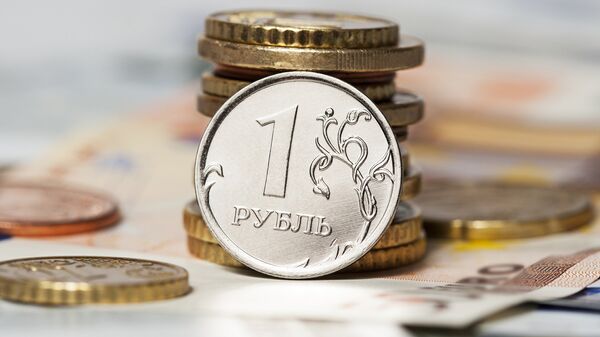"If we assume that the geopolitical tensions and related sanctions continue this year and in the first half of this year, we assume that for 2015 we have quite low growth of 0.3 percent and slightly higher in 2016… If we look at the other side where we could see some further protraction of tensions and a prolonged and increased impact of additional sanctions we could see the economy slipping into a low-level recession next year of around 0.4 percent and also staying in that recession for another year," Birgit Hansl, World Bank Lead Economist for Russia said.
In 2013, the Russian economy expanded 1.1 percent to $2.1 trillion. Some officials are rather pessimistic in their expectations. Head of Russia’s Finance Ministry's strategic planning department Maksim Oreshkin thinks the geopolitical crisis in Ukraine coupled with lower oil prices could cost Russia 4 percent of GDP. Former Finance Minister Alexei Kudrin has warned that multilateral sanctions regime might cost Russia 1 percent of total GDP, which could send the economy into a recession, and lead to a 3-4 percent economic drop.
Yet, there’re more optimistic forecasts. Renaissance Capital analysts base their view on the assumption of a frozen conflict in Ukraine, and the expiry of most Western sanctions on Russia in the second half of next year. Here is Oleg Kouzmin, analyst at Renaissance Capital in Moscow.
"Due to sanctions, we had to downgrade our GDP growth forecast for this year and for next year two times already in 2014. At the moment, we expect that Russia will avoid stagnation – we expect 0.8 percent GDP growth this year and 1.7 percent next year," Oleg Kouzmin said.
Russia also has a number of strong points that could help it avoid stagnation in the current tough environment, RenCap says. First, with unemployment at historic lows, analysts don’t expect consumer demand to drop in the country. Second, most Russian companies are not likely to cut stocks aggressively this year, which minimizes downside for Russian GDP growth. Finally, a weaker ruble also provides some gains. In other words, though sanctions are definitely the main contributor to lower growth this year, they’re not strict enough to totally undermine the Russian economy.

